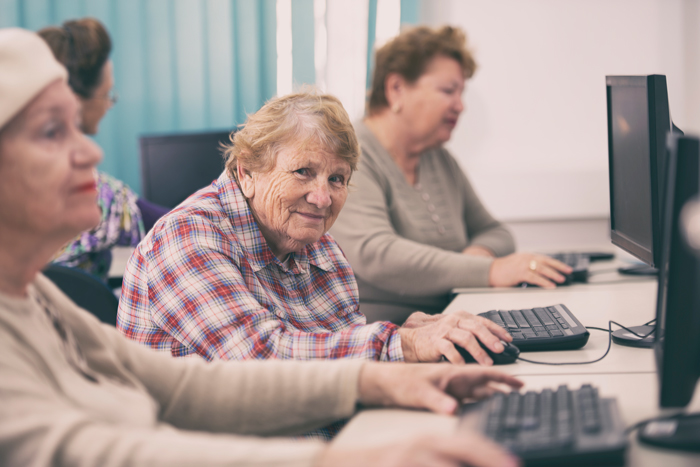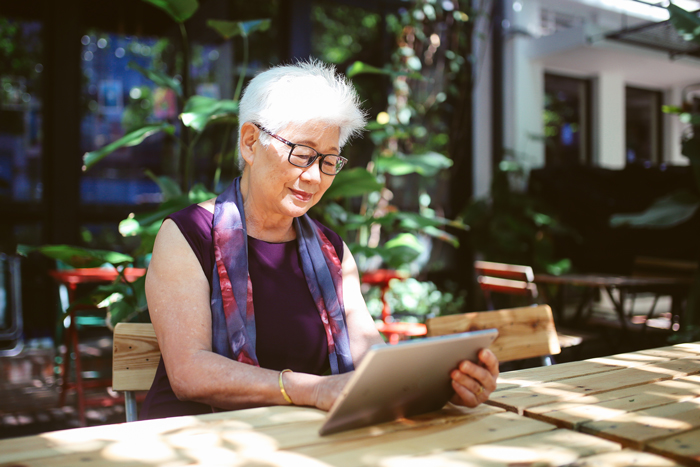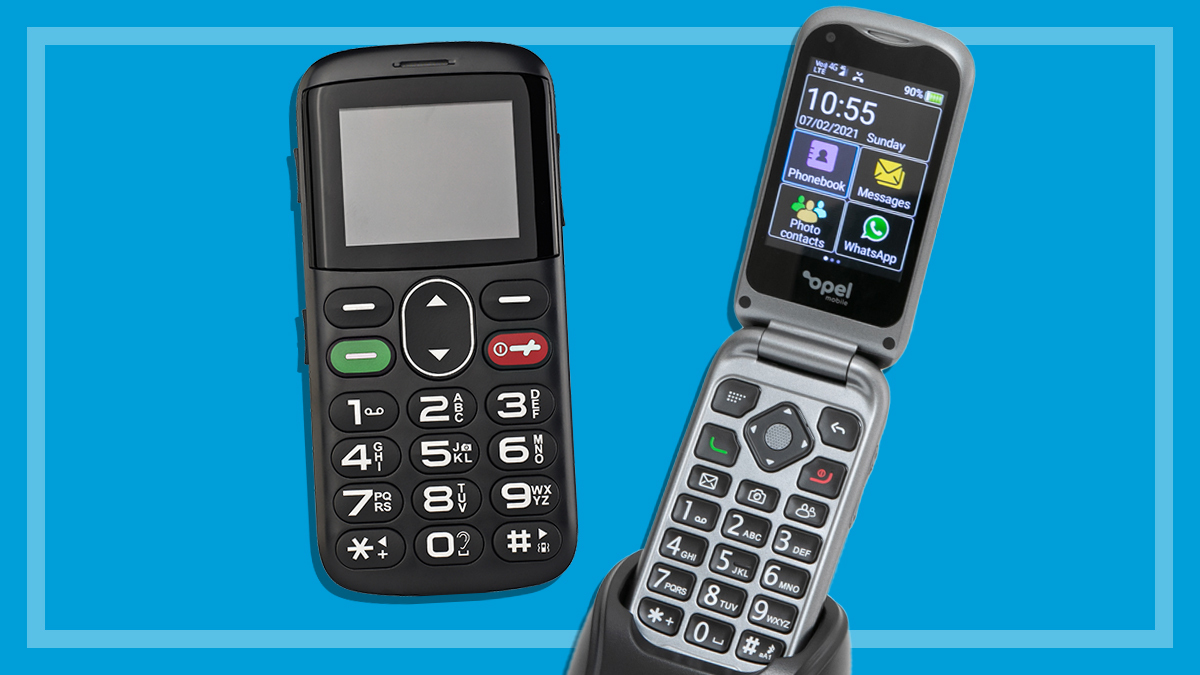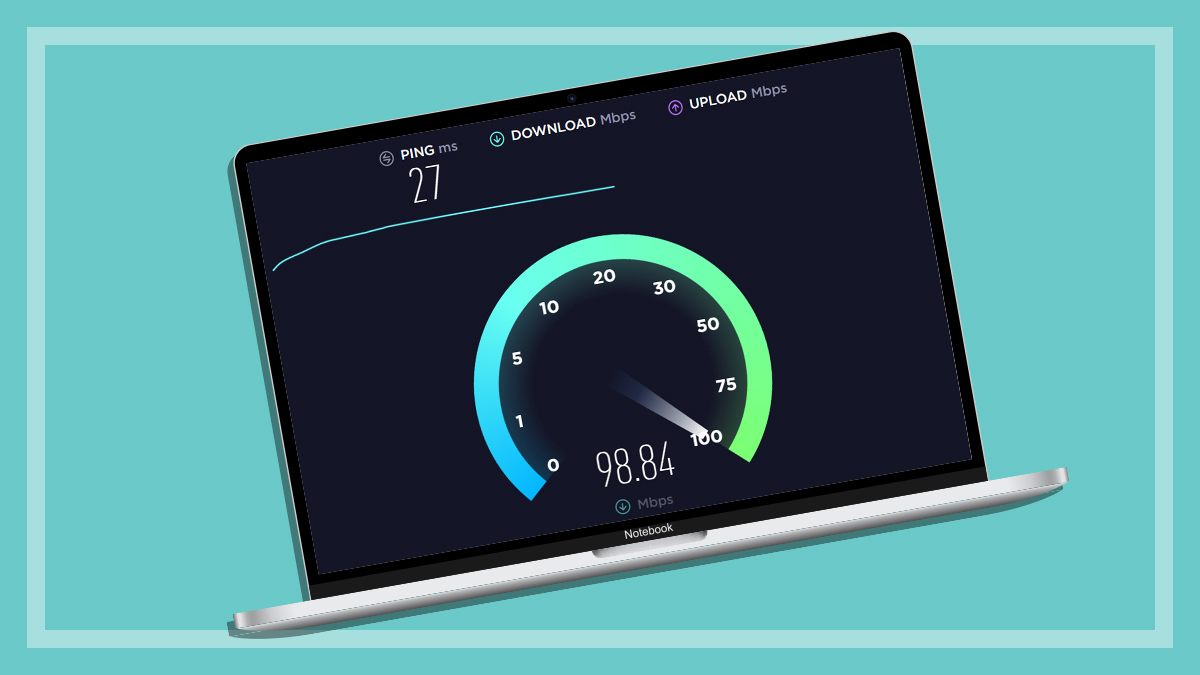Get our independent lab tests, expert reviews and honest advice.
Online access still difficult for many older and elderly Australians

Need to know
- Learning new digital skills is just one of the challenges for older Australians – there’s also the issue of affordability
- Half of low-income households have difficulty paying for home internet
- There are offline digital skills programs for seniors, but sometimes details can only be found online
If you’re in a certain age range, you’ve probably had to guide an older person through the ins and outs of the digital world at some point.
If that person was born in the 1960s or 1970s and had to come to terms with computers and the internet as part of their jobs, the hurdles may not have been too high.
But for many people aged in their 70s, 80s and older, dealing with information technology remains a bewildering experience, no matter how much help they get. As the final vestiges of the analogue world fade away, the digitally disconnected are being left behind in ways that may not be readily apparent.
Digital hurdles: “Form of elder abuse”
For the nonprofit advocacy organisation National Seniors, it’s a moral issue.
“Governments in particular as well as private companies can make a lot more profit and have a lot more efficiency if we do everything online,” National Seniors chief advocate Ian Henschke tells CHOICE.
In a sense, we are witnessing a form of institutionalised elder abuse
National Seniors chief advocate Ian Henschke
“But one of the things that we should always remember is that one of the definitions of elder abuse is neglecting somebody’s needs,” he adds. “So, in a sense, we are witnessing a form of institutionalised elder abuse.
“Telling people you have to get on board or get out of the room. Well, that’s not the way we should run our society. I think we do actually have to make allowances for people, because that is what a caring society does.”
CHOICE Community speaks
Our recent callout on CHOICE Community about elderly people and digital connectivity drew a spirited response. Government platforms came under particular scrutiny.
“I’ve lost count of the number of times that I’ve listened to a recording or person or read a letter from MyAgedCare helpfully suggesting that my 90-year-old mother go online to find something out,” one post reads. “It’s tone deaf in the extreme and another instance of policy not matching reality. Ironically, those who are most vulnerable and in need of tailored delivery don’t receive it.”
The worst example that seniors are increasingly required to use is MyGov. Nothing intuitive about it
CHOICE Community member
Another prominent government website also comes under criticism.
“The worst example that seniors are increasingly required to use is MyGov,” another Community member reports. “That is a painful experience. Nothing intuitive about it. The interfaces to each department are like crossing a moat designed to keep you out, or locked in.”
Older people and their children also report frustration at businesses and government agencies continually redesigning websites, presumably in an effort to make them more user-friendly. For older and elderly people, the updates can have the opposite effect.
“It’s immensely frustrating that when updates occur the apps or devices change their appearance,” says one commenter.
I am now stressed every day by constant changes in layouts, vocabulary and instructions
CHOICE Community member
A woman in her mid-70s tells us, “having been forced into using it, I am now stressed every day by constant changes in layouts, vocabulary and instructions”.
Another Community member sums up the sentiments of many.
“Elderly people fall into two main categories: Those who caught the computer bus and manage to handle life’s digital highway. And others that have been left standing on the bus stop wondering what the hell just happened.”

Internet unaffordable for many
Attaining digital literacy is one thing, but there’s a less publicised side to the generational digital divide: many older Australians simply can’t afford to pay for an internet connection.
Consider these findings from a 2021 report from the Good Things Foundation, a charity that runs Be Connected, a government program aimed at helping older Australians get more digitally connected.
- Only one third of Australian land has mobile connectivity.
- 80% of people 65 and older find it difficult to keep up with tech changes.
- Half of low-income households have difficulty paying for home internet.
- One-third of low-income families with school-aged children have mobile-only connectivity.
- 30% of people living in remote First Nations communities have no household internet or phone.
Be Connected provides free online computer courses on a range of topics including how to safely navigate internet banking.
Costs add up
“We know that somewhere between 20% and 25% of pensioners are living in poverty,” Henschke says. “The pension is their sole source of income. So it’s out of necessity that they’re not connected to the internet. Some people just don’t have the money.”
“A good computer might cost you $1000 or $2000. Then you have to pay another $70 or $80 a month for an internet connection. So you’re talking a couple of thousand dollars a year to be connected to the internet.
“If someone’s only getting a pension of $26,000, and they’ve got other things they need to pay for, they might say I’d rather just use a landline.”
We are aware that a lot of older Australians find it difficult to pay for broadband services
ACCAN CEO Andrew Williams
Andrew Williams, CEO of the government-funded Australian Communications Consumer Action Network (ACCAN), picked up the same point, saying “the single biggest issue is affordability. We are aware that a lot of older Australians find it difficult to pay for broadband services.”
Along with other community organisations, ACCAN has been calling for cheaper broadband to be made available to seniors with limited financial resources, but that hasn’t happened yet.
“Without this service, elderly or less mobile people find it harder to access support services and overcome social isolation,” Williams says.
Pay online or else
CHOICE Community members also expressed frustration at the widespread closure of bank branches, leaving many elderly customers all but cut off from banking services and access to their own money.
For ACCAN, being forced to pay bills and make other transactions online is unfair to older and elderly Australians.
“Unfortunately, this is still an issue that we are seeing, though there have been some improvements,” Williams says.
ACCAN research has shown that people “like to feel in control” of their phone and internet bills, but some telcos still don’t give you much choice.
We would view this as … indicative of a lack of competition and market power, which allows providers to set payment options that suit them rather than consumers
ACCAN CEO Andrew Williams
“For example, some are only offering direct debit,” Williams says. “We would view this as unfair and indicative of a lack of competition and market power, which allows providers to set payment options that suit them rather than consumers.”
“If the person hasn’t got the capacity, you’re neglecting their needs,” Henschke says. “Their need is to have someone help them face to face or to give them a piece of paper, because that’s the world they grew up in. And we shouldn’t forget that.”

Making progress?
In an April 2021 report on the effects of COVID restrictions, the Australian Communications and Media Authority (ACMA) sounded an optimistic note, saying the number of Australians 75 and older who used social media had gone from 18% in June 2019 to 41% in June 2020.
Emailing among older people also took a leap, going from 37% in 2019 to 81% in 2020, according to the ACMA.
But that may not be good enough.
“You’ve still got 60% of people who are not using social media and 20% of people who are not using email,” Henschke points out.
And the ACMA findings don’t cover the issue of hard-to-navigate government or business websites, a key point highlighted by our Community members.
I spent many hours and days on the phone with Telstra trying to sort out my mother’s phone connections because Telstra kept pointing to their website to solve my mother’s issues
Williams says some telcos have tried to make life online easier for the elderly, but there’s a catch.
“Consumers aren’t often aware that these programs exist in the first place, and any information about them is located on their providers’ website. This is problematic for people who don’t frequently engage online,” Williams says.
One CHOICE Community member also took issue with the standard tactic of telling elderly people that the answers to all problems can be found online, saying “I spent many hours and days on the phone with Telstra trying to sort out my mother’s phone connections because Telstra kept pointing to their website to solve my mother’s issues”.
Where to go for help
- Be Connected is a government-sponsored website featuring a range of resources to help older Australians build online skills, including information about free computer classes. Visit beconnected.esafety.gov.au or call 1300 795 897.
- Tech Savvy Seniors (from Telstra in partnership with the NSW government) offers face-to-face training and how-to guides in 14 languages. (You don’t have to be a Telstra customer to access the resources. Other states have also partnered with Telstra.) Courses are run through participating libraries and community education centres. Visit telstra.com.au/tech-savvy-seniors. Unfortunately we couldn’t find a phone number for the program so it seems access to this information may be online only, though you could try calling Telstra on 13 2200.
- COTA (Council on the Ageing) offers a range of free digital mentoring courses in different states and territories. Visit cota.org.au or contact the head office on (02) 6154 9740 for more information.
- Contact your local council and ask about free IT training.






